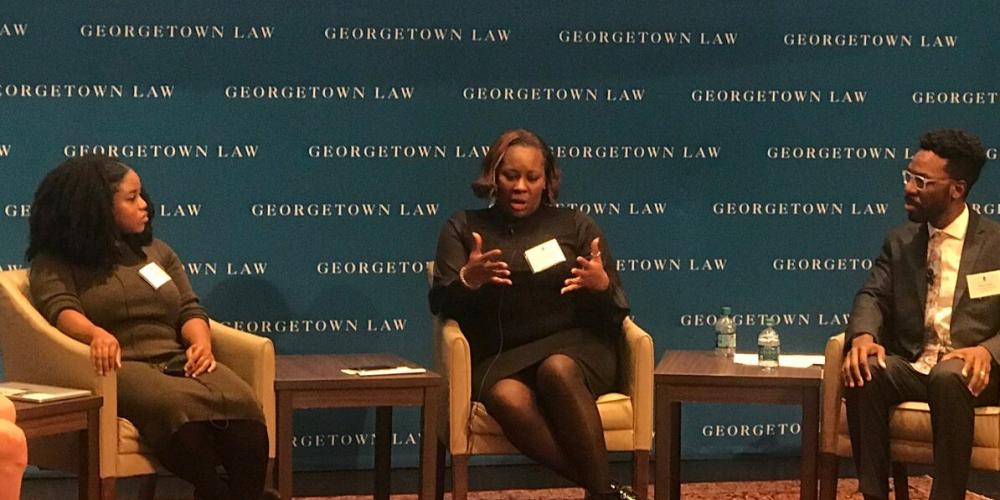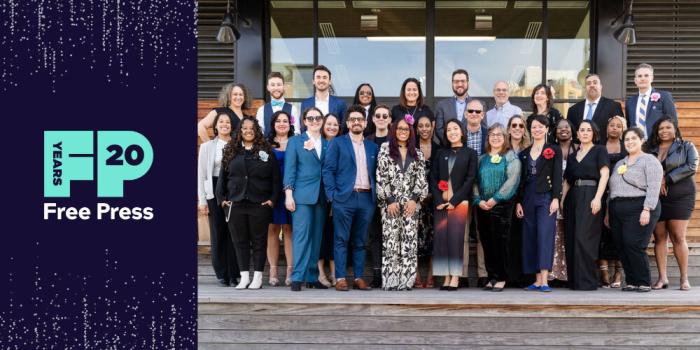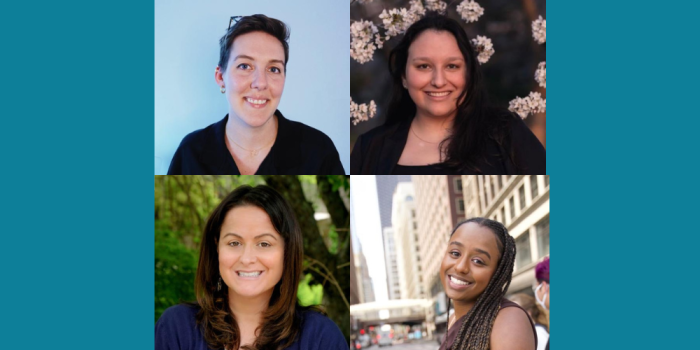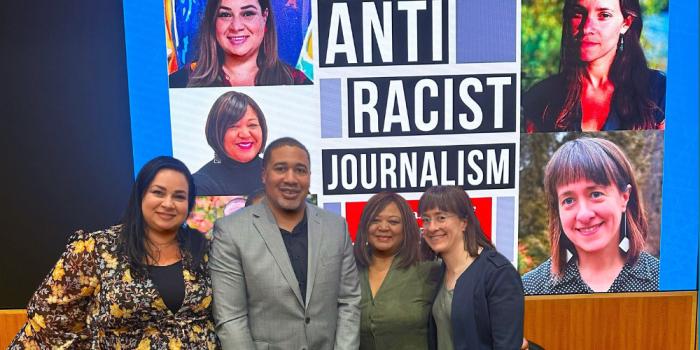How Surveillance Harms Low-Income People and Workers

Free Press was proud to partner with our allies at MediaJustice and the Georgetown Law Center on Privacy and Technology on last week’s Color of Surveillance conference.
The conference, now in its fourth year, focuses on the disparate impact of surveillance and this year’s theme was the monitoring of poor and working people. Previous years have shined a light on the surveillance of Black people in America, immigrant communities and religious minorities.
Throughout the day a number of major themes emerged.
First, a false and dangerous narrative suggesting that there is something wrong with poor people and that they are prone to destructive behavior has long been used to justify the surveillance of low-income communities. From the closely monitored workhouses and poorhouses of the 1800s to the cutting-edge surveillance technology deployed on factory workers today, low-income folks have never enjoyed the right to privacy the elite have demanded for themselves.
A related theme was that surveillance has fueled the erosion of America’s social-safety net.
A number of speakers discussed President Clinton’s harmful overhaul of the welfare system in the ’90s that created rigid work requirements and other difficult burdens as a condition of receiving government assistance. The new rules forced welfare recipients to work to access benefits and established lifetime caps, perpetuating the racist “welfare queen” trope popularized by President Reagan. One speaker explained how immigration and economic policies are closely linked. For example, jobs that immigrants most often hold are often exempt from labor protections, creating yet another hurdle for an already marginalized group of people.
And third, speakers debunked the arrogant idea that poor and working people do not value their privacy and unpacked how they actually care even more than most. Identity theft is an expensive problem, speakers explained, and low-income people don’t have the resources to address the cascade of harms from having your identity stolen. Yet people with limited resources are disproportionately reliant on devices that are out of date and more vulnerable to malware.
Joining academics and policy advocates at the conference was a delegation of activists from across the country who were there to tell their stories.
One member spoke about the amazing organizing farmworkers are doing to demand dignity on dairy farms. Others were there to provide digital-security training to help keep each other safe while organizing to protect workers and low-income folks. Because the people who are most often targeted are also the ones with the least political power, it’s crucial to demonstrate the kind of meaningful change that’s possible when people organize to fight for their communities. Featuring these stories as a central part of the conference was incredibly powerful.
All too often the conversation around surveillance fails to identify who is most often targeted and leaves out these crucial stories. But Color of Surveillance brilliantly explains how the state and the boss use surveillance tools to disrupt political movements and perpetuate inequality. And while technological advances have made spying increasingly invasive, the goals and narrative that justify the use have always been the same.
Free Press was proud to work with our allies in support of this year’s Color of Surveillance and we look forward to collaborating again next year.





